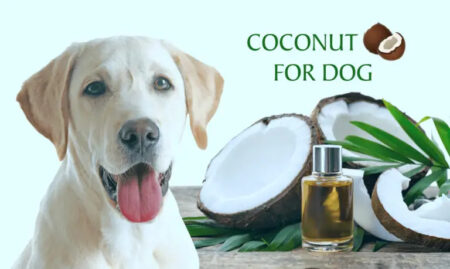Can Dog Have Coconut?
Coconut is a tropical fruit that is enjoyed by many people for its taste and health benefits. But when it comes to our furry friends, can dogs have coconut? Can they enjoy this tropical delight as well? In this article, we will explore whether or not coconut is safe for dogs to consume and the potential benefits and risks associated with it. Whether you’re curious about sharing your coconut treats with your canine companion or considering using coconut oil for their coat or skin, read on to learn more about the topic of dogs and coconut.
Can Dog Have Coconut?
Yes, dogs can have coconut in moderation. Coconut flesh, coconut oil, and coconut water can all be given to dogs, but there are a few considerations to keep in mind.
What Coconut Products Can Dogs Eat?
When it comes to coconut products, dogs can safely consume coconut oil and coconut water in moderation.
Coconut oil is often recommended for dogs due to its potential health benefits. It contains medium-chain fatty acids, which are easily digestible and can provide energy. Adding a small amount of coconut oil to your dog’s food can promote a healthy coat, improve digestion, and boost the immune system. However, it’s essential to start with small quantities and gradually increase the amount, as excessive consumption can lead to digestive issues or weight gain.
Coconut water is another coconut product that is safe for dogs to enjoy. It is a natural source of hydration and contains electrolytes, vitamins, and minerals. Offering your dog a small amount of coconut water as a treat on occasion can be a refreshing and healthy choice. However, it’s important to choose natural, unsweetened coconut water without any additives or preservatives.
SEE ALSO: Can Dog Eat Pineapple?
What Coconut Products Should Dogs Not Eat?
While coconut oil and coconut water can be safe for dogs in moderation, there are some coconut products that dogs should not consume.
- Coconut meat: The flesh of the coconut can be difficult for dogs to digest, especially in large quantities. It may cause gastrointestinal upset, including diarrhea or stomach pain. Additionally, the high fiber content may lead to an obstruction in the digestive system.
- Coconut milk: Coconut milk is not recommended for dogs due to its high fat content. It can cause digestive issues, including an upset stomach or pancreatitis. Furthermore, canned coconut milk often contains additives, such as sugar or preservatives, which are not ideal for a dog’s diet.
- Coconut flour: Coconut flour is made from dried and ground coconut meat. It is high in fiber and can be challenging for dogs to digest. Consuming coconut flour in significant amounts may lead to digestive problems or blockages.
- Sweetened or flavored coconut products: Any coconut products that contain added sugars, flavorings, or artificial additives should be avoided. These can be harmful to dogs and may lead to weight gain, dental issues, or other health problems.
Coconut Benefits for Dogs
Coconut oil has numerous potential benefits for dogs. Some of them include:
- Improved digestion: Coconut oil contains medium-chain triglycerides (MCTs), which can help improve digestion and nutrient absorption. It can also help with conditions like inflammatory bowel disease and colitis.
- Boosted immune system: The lauric acid in coconut oil has antiviral, antibacterial, and antifungal properties. Adding coconut oil to a dog’s diet can help strengthen their immune system and fight off infections.
- Healthy skin and coat: Coconut oil can be applied topically or ingested to improve a dog’s skin and coat health. It can help with dry skin, hot spots, allergies, and yeast infections. Additionally, it promotes a shiny coat and reduces hairballs.
- Weight management: Coconut oil is a source of beneficial fats that can be easily metabolized. It can be included in a weight management plan for dogs, as it provides energy while promoting a feeling of fullness.
- Cognitive support: MCTs in coconut oil can have a positive impact on a dog’s cognitive function, especially in senior dogs. It may help improve memory and cognitive abilities.
- Oral health: Coconut oil has antimicrobial properties that can help combat bacteria.
Risks of Giving Your Dog Coconut
While coconut can be a healthy and safe treat for many dogs, there are some risks and precautions to keep in mind before incorporating it into their diet:
- Digestive Issues: Coconut can be difficult for some dogs to digest, leading to symptoms such as stomach upset, diarrhea, or vomiting. If your dog has a sensitive stomach or any existing gastrointestinal issues, it’s best to consult with your veterinarian before introducing coconut into their diet.
- High-Calorie Content: Coconut is high in fat and calories, so it can contribute to weight gain if given in excess. Portion control is essential to prevent obesity and associated health problems in dogs.
- Allergies: Just like any other food, dogs can be allergic to coconut. If your dog experiences any signs of an allergic reaction, such as itching, scratching, or skin irritation, discontinue the use of coconut and consult your veterinarian.
- Choking Hazard: Coconut can come in different forms, such as shredded or in chunks. If not properly cut or chewed, it can pose a choking hazard to your dog. Monitor your dog while they are chewing on coconut to prevent any choking incidents.
- Pancreatitis Risk: Some dogs are prone to pancreatitis, a condition characterized by inflammation of the pancreas.
Coconut for Dogs Diarrhea
If your dog is experiencing diarrhea, giving them some coconut can offer several benefits:
- Coconut oil: Coconut oil contains medium-chain fatty acids, which have antimicrobial properties. This can help to kill harmful bacteria or parasites that may be causing diarrhea in your dog. Start by giving your dog half a teaspoon to one teaspoon of coconut oil per 10 pounds of body weight, per day.
- Coconut water: Coconut water contains electrolytes, which can help restore your dog’s fluid balance and prevent dehydration. It is important to keep your dog hydrated, especially if they are experiencing diarrhea. Offer small amounts of coconut water to your dog throughout the day, making sure it is unsweetened and without added flavors.
- Coconut meat: Coconut meat is rich in fiber, which can help firm up your dog’s stool and improve their digestive health. You can offer small amounts of fresh coconut meat as a treat or mix it into their regular food.
How Much Coconut Should Dogs Eat?
The amount of coconut you should give your dog depends on their size and individual digestive tolerance. Here are some general guidelines:
- Coconut oil: Start with small amounts, such as half a teaspoon to one teaspoon per 10 pounds of body weight, per day. You can gradually increase the amount if your dog tolerates it well. However, it’s important not to exceed more than one tablespoon per day for small to medium-sized dogs and up to two tablespoons for large dogs.
- Coconut water: Offer small amounts of coconut water to your dog, especially if they are experiencing diarrhea and need hydration. Begin with a few tablespoons and observe how your dog reacts. Too much coconut water can have a laxative effect, so it’s best to offer it in moderation.
- Coconut meat: Give your dog small portions of fresh coconut meat as an occasional treat or mix it into their regular food for added fiber. Start with a small piece, and depending on their size, you can gradually increase the portion. Just be mindful that coconut meat is high in fat, so it should be given sparingly.
Always monitor your dog’s response to coconut and adjust the amount accordingly. If you notice any digestive issues or adverse reactions, reduce or discontinue giving coconut and consult with a veterinarian.
How Should I Feed My Dog Coconut?
There are several ways you can feed coconut to your dog:
- Coconut oil: You can add coconut oil to your dog’s food. Start with a small amount and gradually increase it over time. Mix it well into their food to ensure even distribution.
- Coconut water: Offer coconut water to your dog in a shallow bowl or pour it over their food as a hydrating and flavor-enhancing supplement. Make sure it is unsweetened and without added flavors.
- Coconut meat: Cut fresh coconut meat into small, bite-sized pieces and offer it to your dog as a treat or mix it into their regular food. Ensure that there are no shells or husks, as they can be a choking hazard.
Remember to introduce coconut gradually and monitor your dog’s response. It’s also important to consider the overall calorie and fat intake from coconut, especially if your dog is on a specific diet or has any health concerns. Always consult with your veterinarian before making any significant dietary changes for your dog.
SEE ALSO: Can Dog Have Cinnamon?
FAQs
Q. How much coconut can I give my dog?
A. It’s best to start with a small amount and see how your dog tolerates it.
Q. Is it safe for dogs to drink Coconut Milk?
A. While coconut itself is safe for dogs, coconut milk may not be the best choice. That’s because coconut milk is high in fat and calories, and it can cause digestive upset if your dog has too much of it.
Q. Can I give coconut water to my dog?
A. Yes, coconut water is generally safe for dogs and can even have some health benefits.
Q. Can dogs have coconut or coconut oil?
A. Yes, both coconut and coconut oil can be safe and healthy treats for dogs.
Q. Can dogs eat dried coconut?
A. Yes, dried coconut is generally safe for dogs to eat in small amounts.
Q. Is coconut good for dogs’ skin?
A. Coconut can be beneficial for dogs’ skin and coat health. The medium-chain triglycerides (MCTs) in coconut oil can help to moisturize the skin and reduce inflammation.
Conclusion
Coconut is generally safe for dogs to consume in moderation. It can provide some health benefits such as improved digestion, healthier skin and coat, and potentially even weight loss. However, it is important to introduce coconut gradually and watch for any adverse reactions. Additionally, dogs should only consume the flesh and water of the coconut, as other parts like the husk and shell can be harmful. It is always best to consult with a veterinarian before introducing any new food into your dog’s diet.


